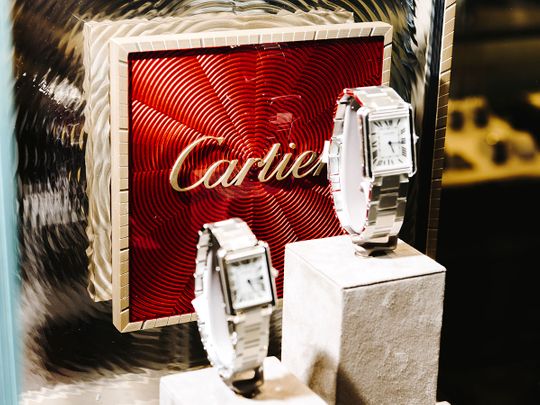
Bellevue: The chairman of Swiss watch empire Richemont poured cold water on the luxury industry's hopes of a quick rebound from the coronavirus, warning of "grave economic consequences" that could last three years.
The reality check from Johann Rupert, who earned a reputation for bearishness with downbeat forecasts before the 2008 financial crisis, contrasts with a more optimistic outlook from industry leader LVMH, which has said it expects to see signs of a recovery within weeks. Even after consumers emerge from lockdown, changes in spending patterns will persist, he said.
"I'm very concerned about the global economy, and concerned that many politicians are promising things that are not deliverable," Rupert said. "It's not a pause; it's a reset."
The maker of IWC Schaffhausen watches, Cartier jewelry and Montblanc accessories said it's impossible to make any meaningful forecasts for Richemont's own business after operating profit fell 22 per cent in the 12 months through March.
The Swiss watch industry is bracing for the worst year in decades, as exports may drop a record 25 per cent in the best-case scenario, Vontobel analyst Rene Weber has estimated. Watches and jewelry tend to be harder hit in economic crises than fashion and leather goods.
Holding onto reserves
Richemont, which has 2.4 billion euros ($2.6 billion) of cash, has enough liquidity if the downturn lasts three years, Rupert said."COVID-19 merely sped up what was probably going to happen in any case, which is economic reality setting in," he said. "The eurozone, despite historically low interest rates, couldn't get job growth going.
"We were prepared for an economic downturn, we didn't know what was going to trigger it - obviously never thinking it will be a pandemic of such tragic proportions."
The China status
Along with other luxury companies, Richemont reported signs of recovery in China in recent weeks after reopening its 462 stores there. But domestic shopping won't be enough to provide a return to growth, given the importance of mainland consumers' overseas spending, which Rupert described as non-existent.
With Chinese tourists who have fueled sales of high-end goods largely stuck at home for the coming months, the outlook for travel-related retail is bleak. Warnings of possible quarantines for visitors to countries such as the UK worsen prospects further.
Other lasting effects of the crisis, according to Rupert: A shift to online shopping will accelerate, becoming a majority of sales within 5 to 10 years; disposable fashion will go out of vogue; and home entertainment will supersede restaurants as people start cooking more for themselves.
No more of 'vulgar display'
The world's social fabric has been tearing for a decade as central banks have been penalizing savers and governments have bailed out the financially imprudent, Rupert said. In anticipation of a shift away from bling, Richemont has increasingly focused on more understated watches and jewelry, he said.
After the coronavirus crisis, "I absolutely believe that the vulgar display will be frowned upon even more," the billionaire said.








